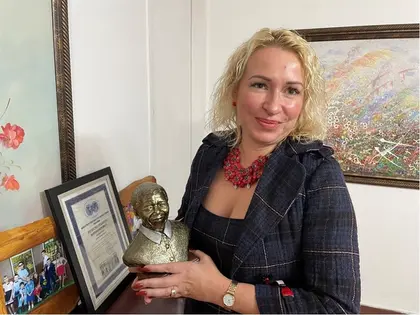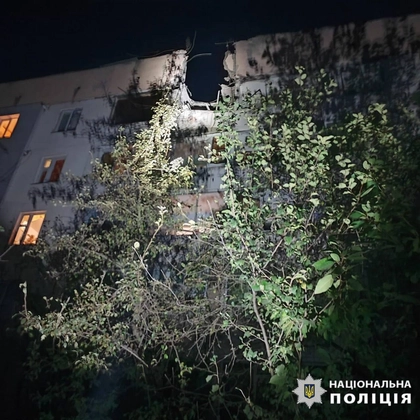The Russo-Ukrainian war is not only fought on the front in Ukraine with weapons, but also worldwide with diplomacy.
Africa, in particular, is still a hotly contested continent, where the balance is changing rapidly. Russia still enjoys a position of advantage there, from the times when the Soviet Union invested many resources in anti-colonial wars to weaken European influence and courted the emerging African ruling classes, opening its universities for the education of young Africans.
JOIN US ON TELEGRAM
Follow our coverage of the war on the @Kyivpost_official.
Then, in the aftermath of the collapse of the USSR, Russia retained its embassies and its large diplomatic network, while Ukraine had to start from scratch, inheriting only a small percentage of ambassadors. In fact, out of 54 African countries, Ukraine in 2022 had only 10 embassies, compared to Russia’s 44. The Russian presence in Africa also manifested through the presence of Wagner mercenary units, which control mineral resources in some countries, in exchange for protecting the governments militarily.
Yet the war in Ukraine is challenging Russian influence inherited from the Cold War. South Africa is a prime example.
South Africa is the most important African country – not only in economic terms, but also due to the international image left by Nelson Mandela. As such, it is an important pawn in the diplomatic struggle between Russia and Ukraine to obtain the support of African countries.

South Korea Demands 'Immediate Withdrawal' of North Korean Troops in Russia
It was precisely the South African government that inflicted Putin’s first diplomatic setback: the request not to come to Johannesburg for the BRICS Summit, on Aug. 22-24, 2023, due to the arrest warrant from the International Criminal Court, despite the head of the Kremlin having received an official invitation. Russia’s reaction was very sharp, but South Africa did not give in. Indeed, in the province of Cape Town, the local police had even received orders to carry out the arrest warrant on Putin. And this diplomatic incident happened despite the feeling of sympathy of the South African population towards Russia, mindful of the military support given in the guerrilla war against the “white” forces backing Apartheid.
This position in defense of international law has cooled relations with Russia and created a breach into which Ukrainian diplomacy has infiltrated. In fact, a few months later, on Nov. 6, 2023, there was the official visit of the Ukrainian Foreign Minister Dmytro Kuleba, welcomed by the South African Foreign Minister Naledi Pandor. And the Cape Town City Hall was lit up in blue and yellow when the Russian invasion started. Furthermore, President Cyril Ramaphosa had openly expressed his opposition to the war and his support for the territorial integrity of Ukraine.
The Ukrainian ambassador to Pretoria, Liubov Abravitova, spoke about these diplomatic changes, during a meeting with the delegation of Italian journalists on a mission to Pretoria, in December 2023, for the 10th anniversary of the death of Nelson Mandela. Claudio Locatelli, an independent war reporter, who won the European Youth Press selection provided by the European Parliament three consecutive times and has been covering the war in Ukraine, asked her some questions about the state of South Africa-Ukraine relations.
How are relations between South Africa and Ukraine developing?
It is a very interesting time for relations between Ukraine and South Africa, but also for the relations between Ukraine and many countries in Africa. We call it the Ukrainian Renaissance. I would say that Ukraine, being a very young democracy, would have to come to this point sooner or later as we focus on our bilateral dialogue with the countries of African continent.
The countries of Africa did not really have the tradition and culture of having business and dialogue with Ukraine. But suddenly, with Russia’s aggression, they recognized the importance of Ukraine for the world’s stability and security – food security. When even in South Africa the population was affected by the rise of prices on basic food commodities, a lot of questions appeared.
How has the legacy of Nelson Mandela, which makes South Africa a country very supportive of human rights, helped Ukraine to explain its high motivation in fighting against the Russian invasion?
Thanks for bringing the legacy of Nelson Mandela into our discussion, because now we are commemorating the 10th anniversary of memory and legacy of this world leader, who was standing for the very same values that Ukraine is protecting today. We are still talking about the same values of democracy. We’re still talking about the very same rules and norms of international law, the UN Charter, that all of us, Ukraine and South Africa included, are adhering to.
Not many people even realized that the war there has been going on for eight years. And the problem of reaching out to South African society was how to explain the historical context of Ukrainian and Russian relations, how to explain what Ukrainians are standing for, why we are so bravely defending our land, our homes, our people.
Russian propaganda built an image of Ukraine as a country affected by racism and guided by far-right politicians. How do you deal with this topic in South Africa?
In South Africa, when I go to public lectures and interviews, I encourage people to speak about it, because the racism as it is, is the cancer of any society in the world, as you can imagine – just as xenophobia is, or other violations of democracy and human rights. I want to draw your attention to some data: in Ukraine in February 2024, there were about 9,000 students from the countries of the African continent. I strongly believe that those students would not come to Ukraine to study if Ukraine were a racist country.
Ukraine is a democratic country. If you look at the parliament, the Verkhovna Rada, where democratically elected parliamentarians are sitting, you will not find any representative of the far-right party. That’s my answer to your question.
You can also highlight the text and press Ctrl + Enter






